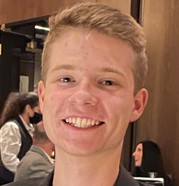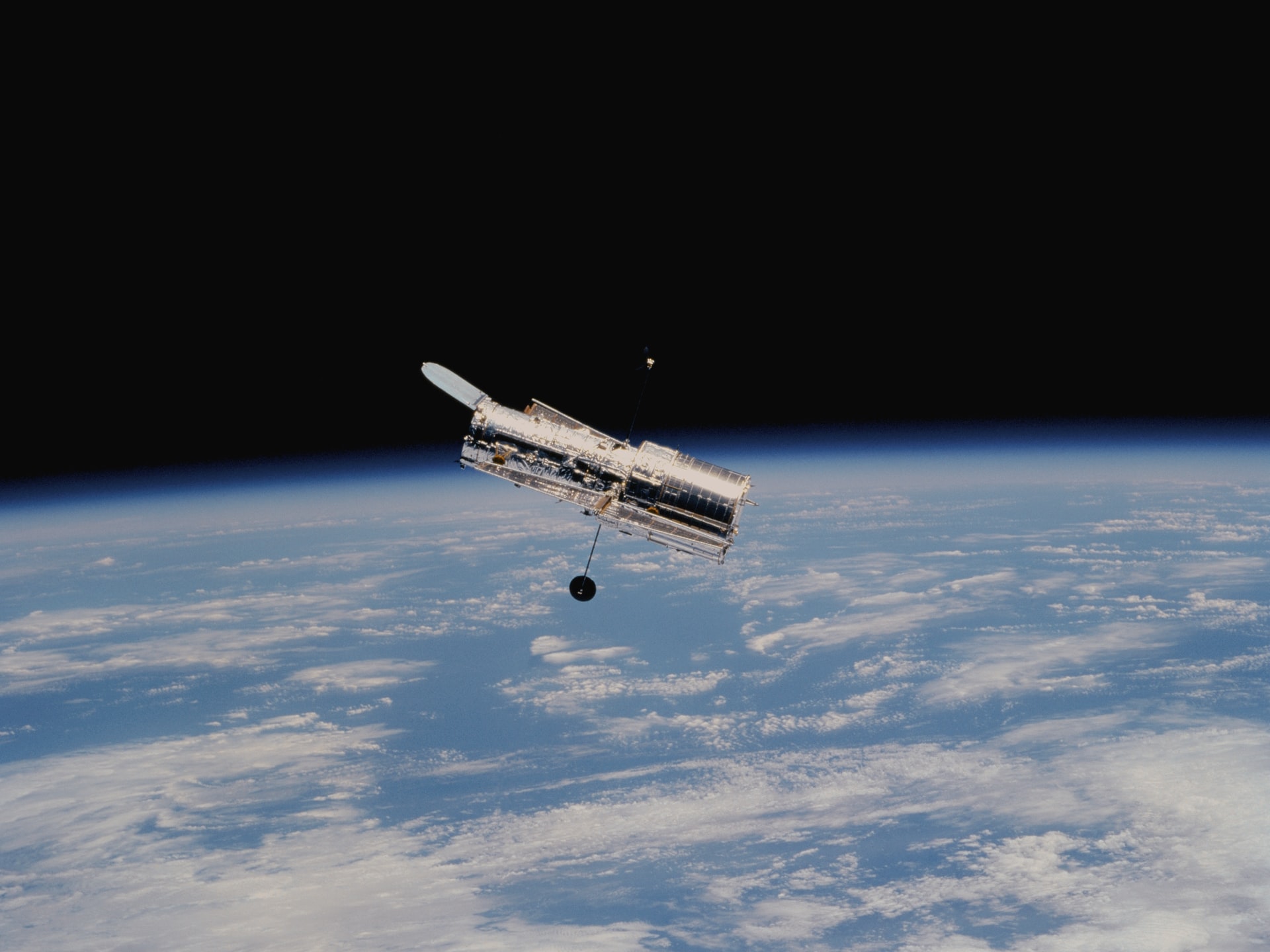
Why Study Physics at K?
Understand the marvels of the physical world and use that knowledge to drive technological advancements.
As a physics student, you will gain a fundamental understanding of the natural world and modern technological achievements. Taking a liberal arts approach to learning, the department does not teach physics in isolation, instead it provides opportunities to apply your knowledge across disciplines: engineering, computer science, astronomy, medicine, and environmental science. This integrated approach to learning—in addition to close faculty mentorship, research opportunities, and a vibrant STEM community on campus—will give you the skills, confidence, and knowledge needed to advance the field.
You will develop these competencies through courses like Nonlinear Dynamics and Chaos, Astronomy, and Quantum Mechanics—to name a few—that examine natural phenomena and their societal implications. Outside of the classroom, you are encouraged to supplement your studies with research and internships, either with faculty, external partners, or independently.
By the time you graduate, you will have all the necessary technical and mathematical skills to pursue graduate studies or enter the workforce as a physicist. Notably, our alumni have had successful careers in technology, engineering, education, finance, patent law, and business.
What can you do with a physics degree?
Below are some of the careers, employers, and graduate schools of our physics alumni.
Careers
- Data Scientist
- Engineer
- Professor/Teacher
- Software Engineer
- Physician
Employers
- Oracle
- Intuit
- Upstart
- Wabash College
Graduate Schools
- University of Michigan
- University of Notre Dame
- Boston University
- University of Chicago
- University of North Carolina at Chapel Hill
Program Spotlights
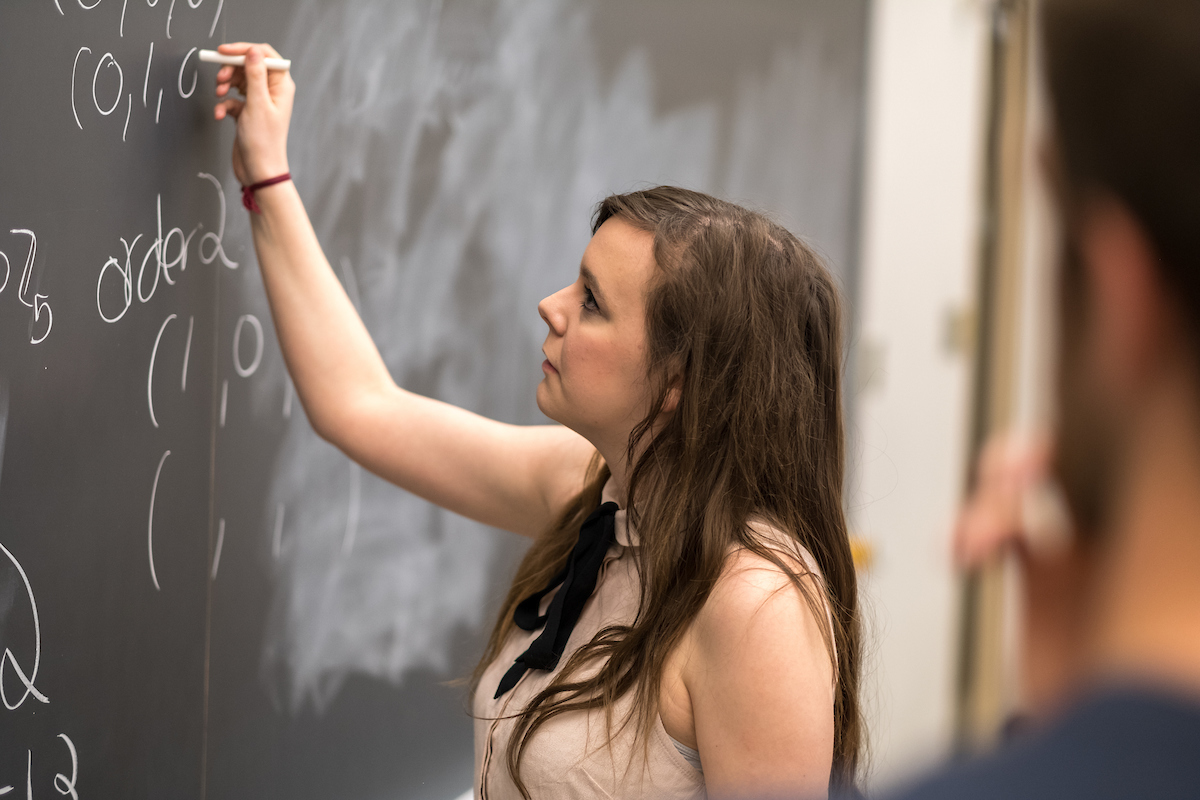
At K, it’s not always about getting the “right” answer
Physics at K is not trying to turn you into a human calculator; we are less concerned about you being able to find the correct answer as we are that you understand why the answer is correct. To gain this level of critical thinking and analysis, our faculty have embraced innovative teaching styles that move away from traditional lectures and written exams. Instead, we will focus your time on developing the skills you need to approach unfamiliar problems head-on—just as you will do throughout your career as a physicist.
Join a department that supports one another
Within the physics department, our students understand the importance of peer support in facilitating personal success.
Academically, the College hires advanced students in our Math and Physics Center, which holds open tutoring sessions to help you with assignments and studying for exams. To socially support underrepresented groups in STEM, students have formed Sukuma, a peer mentorship program for personal and academic empowerment. Professionally, the Society of Physics Students arranges opportunities for you to explore current, historical and future events in physics.
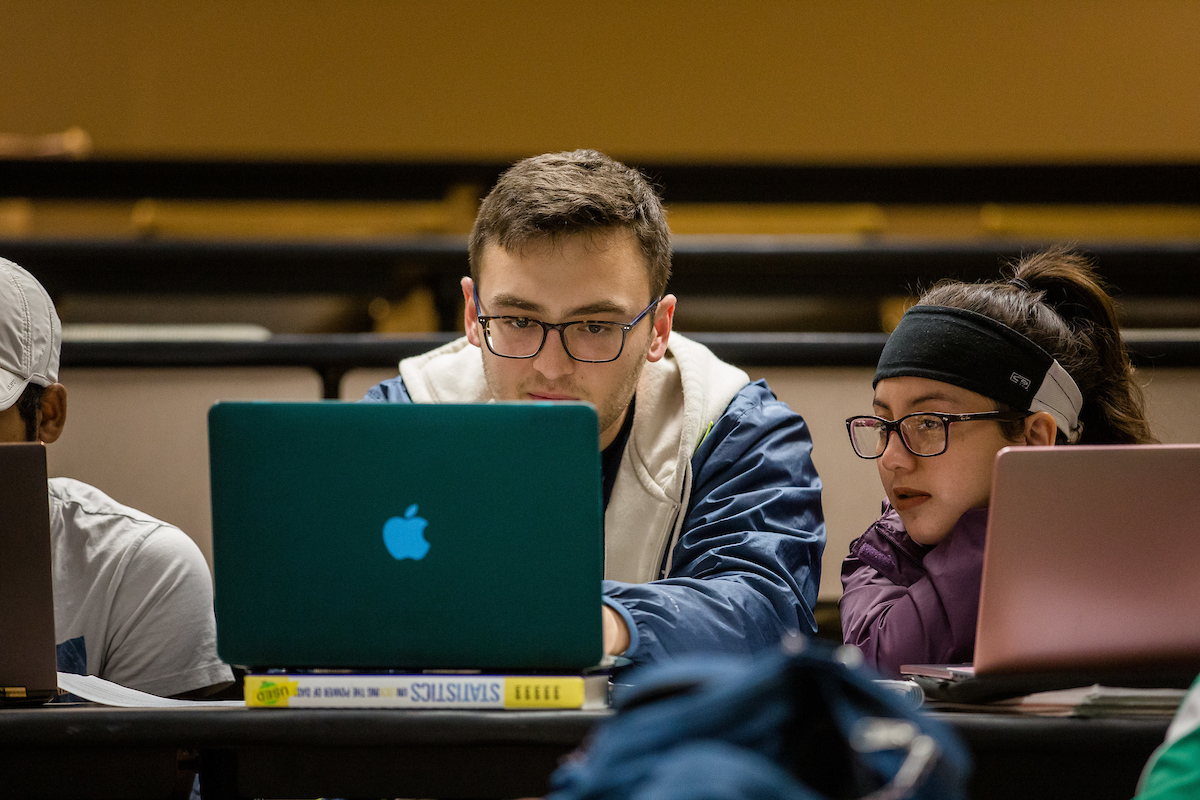
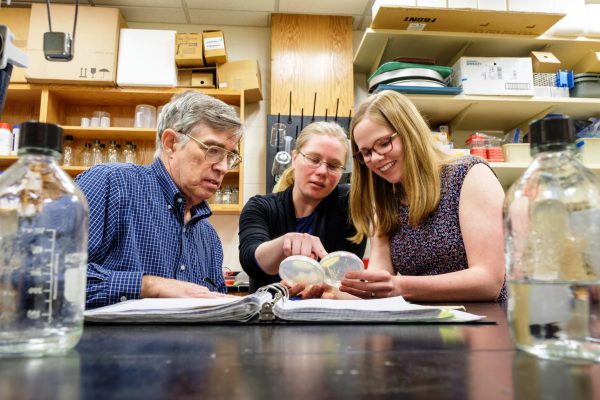
Benefit from personalized mentorship
Our physics faculty take immense joy and pride in getting to know our students on a human level and giving personalized mentorship. Outside of class, office hours, and advisor meetings, physics professors exemplify this connectedness through a weekly “tea time,” where professors and students gather and share in conversation, snacks, and community.
Meet the Current Departmental Student Advisor
What is the best thing about being part of this department?
Working closely with professors and classmates on tough problems.
What has been your favorite class at K? Why?
Thermal Physics and Statistical Mechanics (PHYS 360)! I had lots of friends in the class. We had a lot of fun working through the material together.
What experiential education opportunities have you participated in?
I’m the president of SPS [Society of Physics Students], Senior Leader of the MPC [Math and Physics Center], and went to an REU [Research Experience for Undergraduates] at the University of Florida.
What is your Senior Integrated Project (SIP)?
Building a custom ramp truck from scratch.


